Inside Poland’s ‘LGBT-free zones’: ‘It reminds me of the ‘Jew-free’ zones in Nazi Germany’
Poland’s ‘LGBT-free zones’ are a grim reminder that, even in Europe, the fight for human rights is far from over. In a special series, we speak to three queer people living inside them.
By Will Stroude
The full edition of this article appears in the Attitude Summer issue, out now to download and to order globally.
Words: Ruben Wissing
They have already been around for a year now, the so-called ‘LGBT-free zones’ in Poland. Some 90 municipalities, primarily in south-eastern Poland, have officially declared war on what they deem ‘gay propaganda’.
A far-right Polish news magazine has been distributing ‘LGBT-free zone’ stickers and thousands of hooligans have been attacking Pride demonstrators. Although the European Union condemns what is taking place within its territory, that doesn’t seem to be having much of an effect — the conservative government feels that Brussels should keep its nose firmly out of Poland’s business.
In February 2019, the municipality of Warsaw created a manifesto aimed at achieving equal rights for the queer community, and providing better information on gender and sexual orientation. But what they achieved was the absolute opposite: Jarosław Kaczyński, leader of the ruling conservative Law and Justice (PiS) party, labelled the manifesto both anti-Polish and a threat to Christian family values, stating that LGBTs* should keep their hands off children, with their “masturbation lessons”.
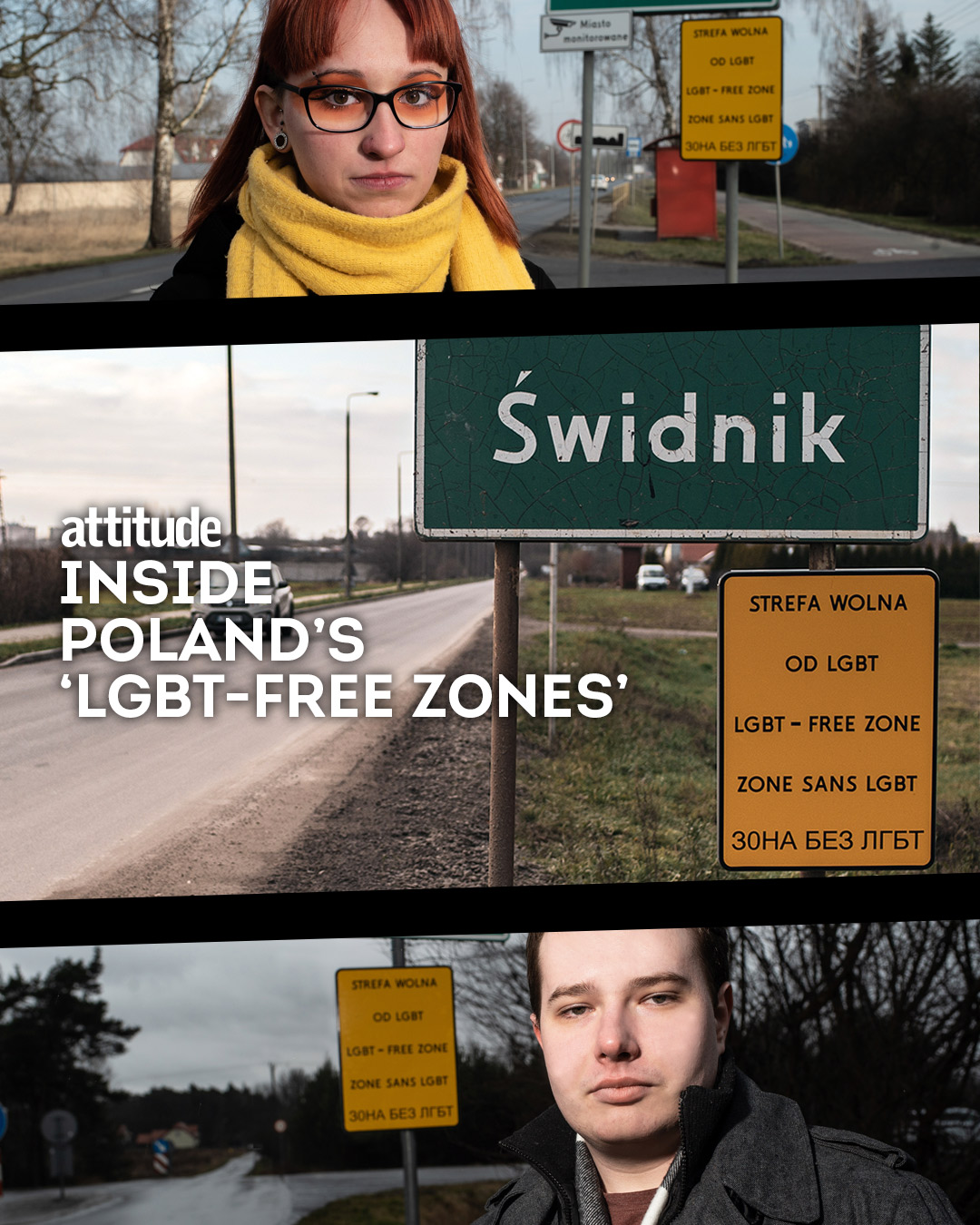
His statements were met with resounding support from the electorate. He had clearly found a scapegoat for his campaign for the European elections, which he overwhelmingly won. After that, the Archbishop of Kraków – a man with considerable power – took things up a notch by talking about a “rainbow plague” that would infest Poland. Then, the far-right news magazine Gazeta Polska started their ‘LGBT-free zone’ sticker campaign.
As a final, sour cherry on the cake, local authorities in Lublin created an antimanifesto, the first resolution to make a Polish municipality ‘LGBT-free’. At the time of writing, almost one-third of Poland has followed this example. We find out what it’s like to be LGBT and living in one of these zones.
NIKITA, 24
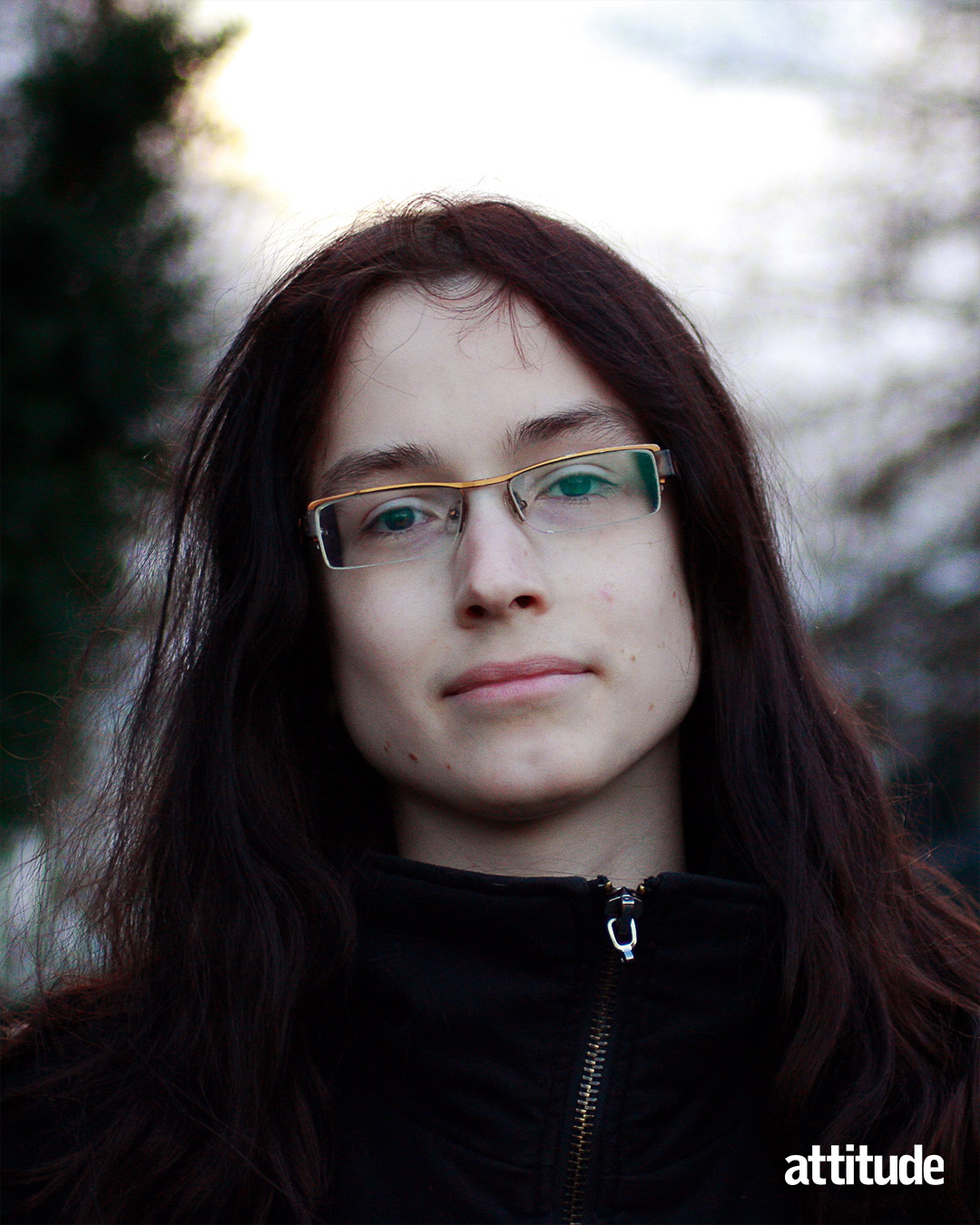
Nikita is non-binary, bisexual, intersex and transgender and works as a computer programmer in Rzeszów.
What does an ‘LGBT-free zone’ mean, exactly?
You should view it as a declaration that says: go away with your scary ideology that is endangering the traditional family. Here’s an example: the municipality of Ostrów Lubelski stated that it does not take the “artificial problems” of LGBTs seriously, and will do anything to “protect schools from the sexualisation of children” – directed at socalled “gay propaganda”. They also claim that we are putting Polish independence at risk.
Why is this homophobic sentiment stronger in the eastern part of Poland?
That region is much more conservative. These are the areas where right-wing politicians – from the ruling PiS party – win elections. This region is also known as the Eastern Wall – although there are plenty of conservative lobby groups active in west and central Poland.
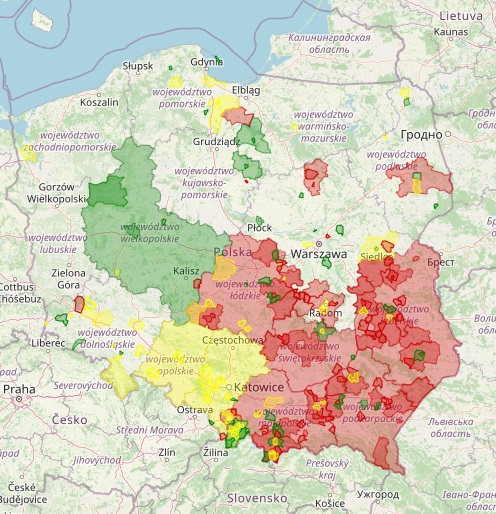
Poland’s ‘LGBT-free zones’ (Image: Atlas of Hate)
You live within an ‘LGBT-free zone’. How did it affect you when this news came out?
When Gazeta Polska sent out stickers with the words ‘LGBT-free zone’ to its readers, I felt awful and scared; as if every type of progression that had been made was reduced to point zero, by the people at the top. It reminded me of the ‘Judenfreie’ (Jew-free) zones in Nazi Germany. I’m still lucky in a sense, though, but I’m quite worried about young people who are maybe still in the closet, and don’t have a support network of good friends around them: a position that most of us have been in at some stage.
What is the impact on your daily life?
Not too severe, but mostly that’s because I haven’t actually come out yet at my work. I did to my parents, though, recently. That went OK, but I know I’m an exception in that sense. Super-conservative parents aside, there are also many parents in Poland who do support LGBT [people], but who have trouble accepting it if it’s their own children who are queer. It’s very difficult when you’re not able to be yourself around your loved ones. The developments within our society make that far from easy, and in many cases this leads to fear and depression.
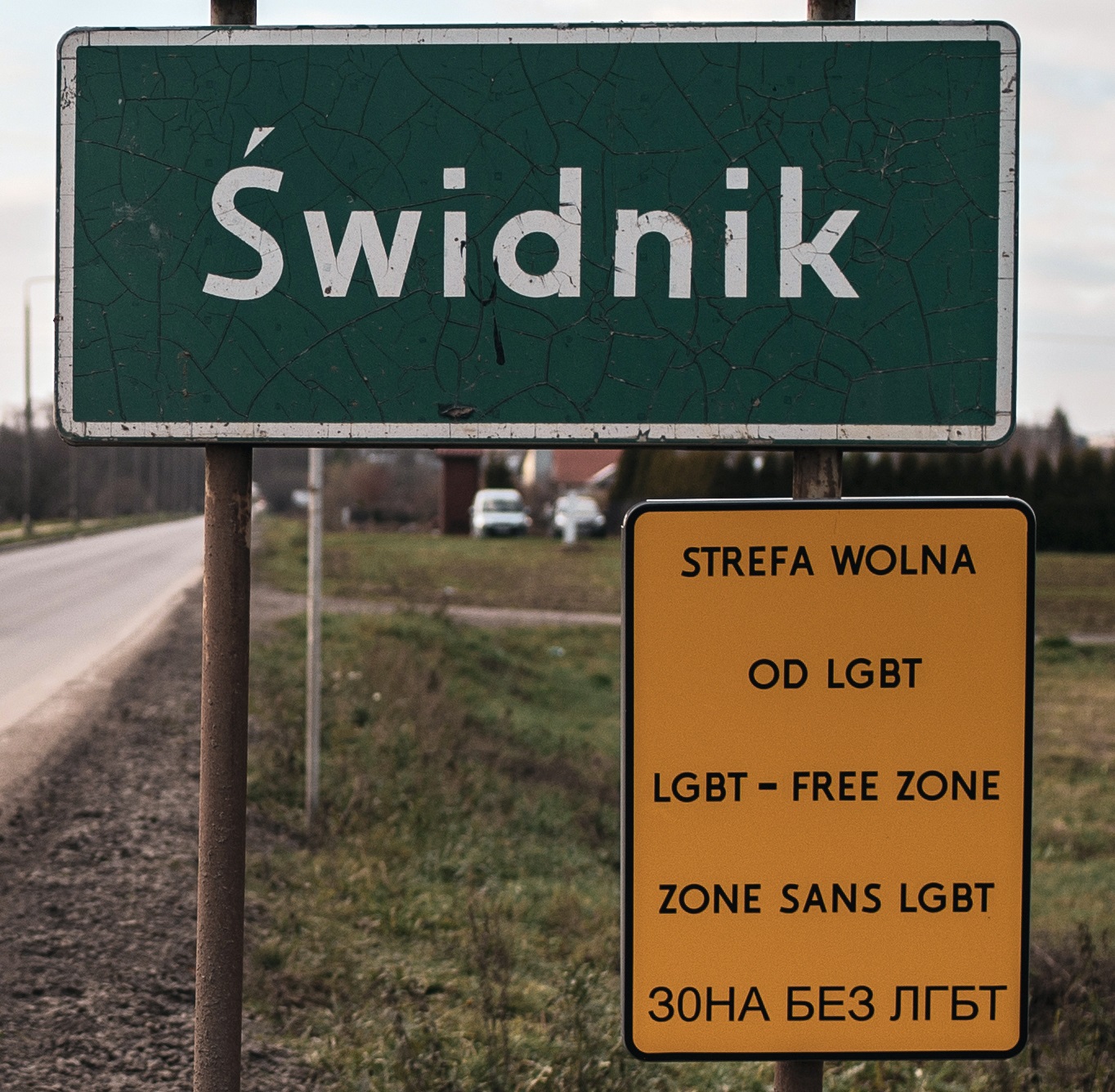
Discrimination on the basis of sexual preference is forbidden in the European Union. Is that ban on discrimination being honoured in Poland?
Poland likes to see itself as the “last bastion of Christian values”, whatever that’s supposed to mean. Extreme right-wing politicians claim that the “Communist” EU is “forcing” an ideology on Poland, so they don’t care what Brussels thinks. In addition, the police are not given adequate anti-discrimination training, and there are countless cases of homophobic violence, which is trivialised in police reports, so you never really feel protected – and the government’s the last body we can expect protection from, as they use vulnerable population groups as a scapegoat.
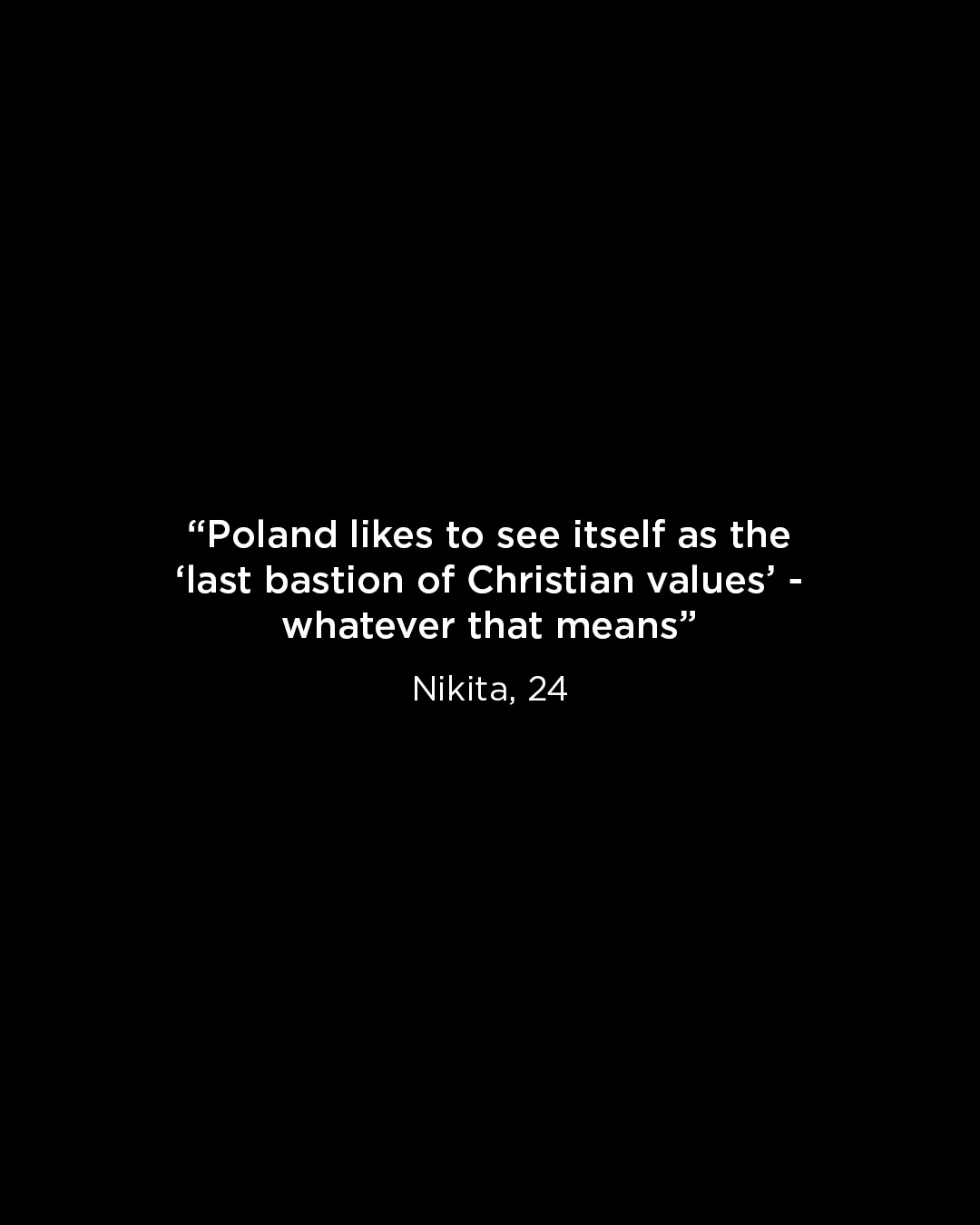
Has it become more difficult to speak out?
Actually, I feel more empowered by taking part in pro-LGBT initiatives, especially now I know that I am part of an accepting family. After the attack on Pride demonstrators in Białystok [in July 2019], there are many protests in cities that have shown their solidarity against homophobic violence. That gives me a lot of strength.
Read more about life inside Poland’s ‘LGBT-free’ zones in the Attitude Summer issue, out now to download and to order globally.

